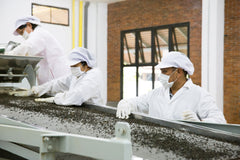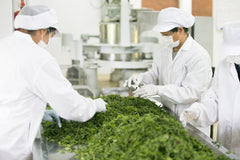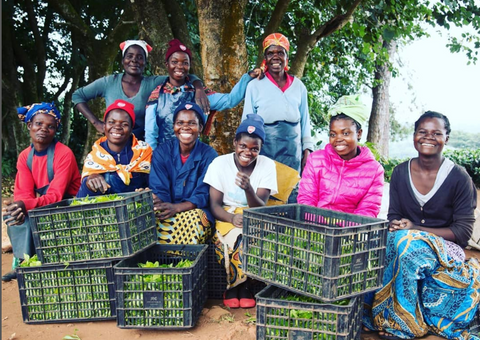Tea gardens
I work directly with tea gardens and a small number of wholesalers to source the best tea for you. Here, you can get to know some of my favourite gardens.
~ Anna
Jun Chiyabari Tea Garden, Nepal
Jun Chiyabari is an organic tea garden in the eastern Himalayan region of Nepal. It was established by brothers Bachan and Lochan Gyawali in 2000.

It is located in the hills around the small town of Hile in Dhankuta at an altitude of 1700-2250 meters above sea level, approximately 200 km east from Kathmandu; 55 km west of Ilam in Nepal and 65 km west of Darjeeling, India. Jun Chiyabari means 'moon-lit tea garden' in Nepali.
Spread over 6 divisions totaling 96 hectares, Jun Chiyabari Tea Garden was a project that started from scratch with each step and process meticulously planned and executed. From purchase of specific parcels of land to planting of select tea cultivars, Bachan and Lochan designed and constructed the factory and employed the best people from the tea industry.
The underlying philosophy of Jun Chiyabari Tea Garden is respect for produce, people and place. Bachan and Lochan's goal is to produce the best possible teas in keeping with organic practices and ecologically friendly principles. They believe in sustainable farming practices with emphasis on bio-diversity and commitment to organic cultivation.
The manufacturing season starts in March and continues until December. All of their teas are crafted from high elevation leaves only and processed in methods that are unique and in some cases secret to Jun Chiyabari. As most of their teas are artisanal in nature, each batch differs from one another even within the same type and style and from day to day and season to season.The teas are a true reflection of the terroir and seasonality of Jun Chiyabari's high mountain tea gardens.
One of Jun Chiyabari's core philosophies is to be an active and integral part of their local community. The garden directly employs over 150 people, mostly women, in a rural hill district of Nepal.

Bachan and Lochan believe that while employment is critical in providing financial independence, particularly for women, it is imperative that they, the fortunate ones, also contribute towards the betterment of the less fortunate members of society in other ways too.
Jun Chiyabari is certified Organic under EU, NOP USDA-ORG and JAS standards. It is also ISO 22000 certified.
View my current Jun Chiyabari tea collection here.
Follow Jun Chiyabari here.
Bukit Sari Tea Garden, West Java, Indonesia
Bukit Sari is an organic tea garden covering 3.5 acres that sits in the middle of conversation forest in West Java, Indonesia. It was established in the 1920's during the Dutch colonisation of Indonesia.
The garden has been certified organic since 2007 and the team has a huge focus on sustainability. Their garden sits Their tea plants are fed by natural mountain spring water and grown amongst companion plants of flowers and herbs, which act as a natural bug repellent. 
Their vision is to 'To lead the global movement towards sustainable living by crafting exquisite organic Tea products at Bukit Sari Tea Plantation. Inspire a conscious shift towards organic consumption, enriching lives and preserving nature for generations to come.'
Their tea is of exceptional quality. They produce high grade specialty tea, as well as dried plants for herbal infusions.
View my current Bukit Sari tea collection here.
Follow Bukit Sari here.
Obubu Tea Garden, Kyoto, Japan
Founded and led by Akihiro Kita, Yasuharu Matsumoto, and Hirokazu Matsumoto, Obubu is a contemporary tea garden located in Kyoto Japan. The team runs the garden as an agricultural social venture with a strong focus on high quality tea, community contribution and tea education. 
The garden operations are guided by Japanese Zen Buddhism, in particular the ‘wholeness’ philosophy where the tea farm uses the entire tea leaf without wasting any of its parts.
The Obubu team dedicates a lot of time to tea education and helping tea lovers round the world understand the unique world of Japanese tea. They love building and nurturing their international tea community, bringing the tea producer and tea consumer as close together as possible.
View my current Obubu tea collection here.
Follow Obubu here.
Satemwa Tea Garden, Malawi, Africa
Satemwa is a third-generation family-run tea farm located in the Shire Highlands in Thyolo, Southern Malawi, Africa.
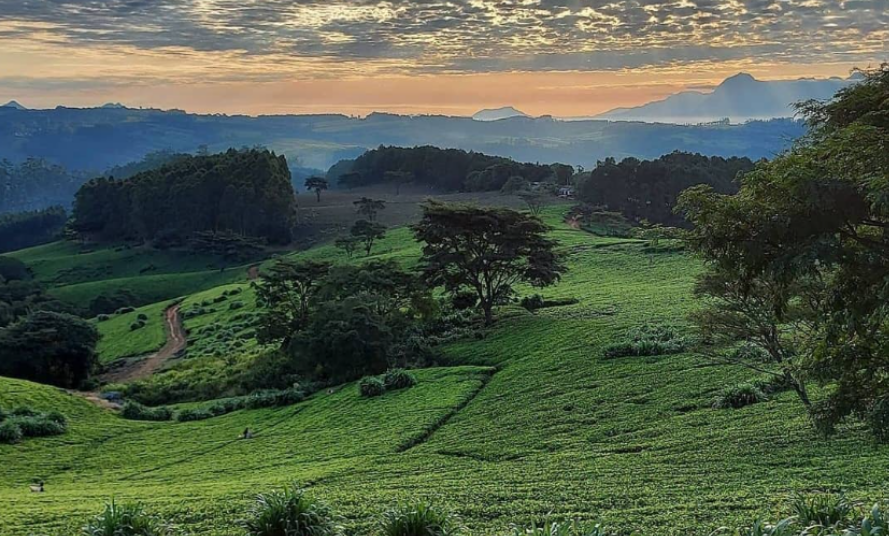
It was founded by Scotsman Maclean Kay in 1923 after he emigrated from Scotland and bought his first piece of land from a tobacco farmer to grow tea. His son Robert, nicknamed Chip, eventually took over the estate. Now, Chip’s eldest son Alexander runs Satemwa.
Satemwa produces small volume, orthodox specialty teas - white, green, oolong, black and dark tea - in addition to high volume, lower quality CTC tea. Sustainable eucalyptus, micro-lots of coffee and bamboo are also grown at Satemwa.
Satemwa’s tea fields sit at an altitude of 950 – 1200m above sea level. Their tea plants are grown and maintained without pesticides. All of their teas are harvested by hand. The team takes an experimental and open-minded approach to tea making which sees them producing exceptional and unique whole leaf teas that reflect the Malawi terroir.
Satemwa also has a strong focus supporting its people, and combating the effects of climate change. They are certified by Fair Trade and Rainforest Alliance and are a signatory of the UN Global Compact, a voluntary initiative based on CEO commitments to implement universal sustainability, human rights, labour, environment and anti-corruption principles.
Wang Family Tea Garden, Nantou, Taiwan
Siblings Joshua and Ivy Wang run the Wang Family tea company in Nantou, central west Taiwan. The Wang family has been growing and selling high-quality tea for four generations. In addition to managing their own farms, Joshua and Ivy now source and sell their neighbours' and friends' teas.

Joshua and Ivy focus on natural farming and traditional tea-making methods. They see their role as custodians working alongside nature to bring out the best natural characteristics of each tea and its growing environment.
Joshua and Ivy say the scenic mountains of Taiwan hold a wealth unlike any other: the simple and unassuming tea tree. This treasure is more valuable to them than any material wealth, it brings comfort and joy to all who partake in even a single cup.
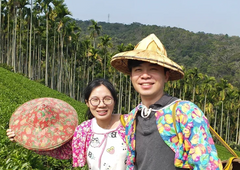

View my current Wang Family Tea collection here.
Follow Wang Family Tea here.
Five Trees Estate, Mogok, Myanmar

Five Teas Estate is the only export-focused specialty tea garden in Myanmar. It is owned by Mogok Tea, which was started as a social enterprise in 2019 by Phye Thwe, a Mogok local who is now based in London.

Read more about Mogok Tea and its incredible founder Phyu in my blog, 'Creating prosperity in Myanmar through tea.
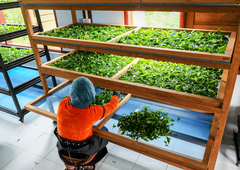
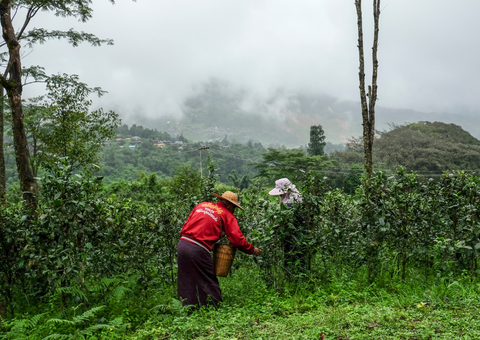
We don't currently have any Mogok teas in stock but hope to soon.
Follow Mogok Tea here.
Wuyi Origin, Fujian, China

Cindy's family has been in tea for generations. Cindy took over the family business in 2008 with her own tea garden and processing factory. After marrying Zhou in 2013, also from a tea background, they created Wuyi Origin tea. Cindy sells tea from her own garden, as well as leaves from her and Zhou's extended family. Cindy and Zhou value quality tea craftsmanship and love sharing the experience of their region’s special teas.
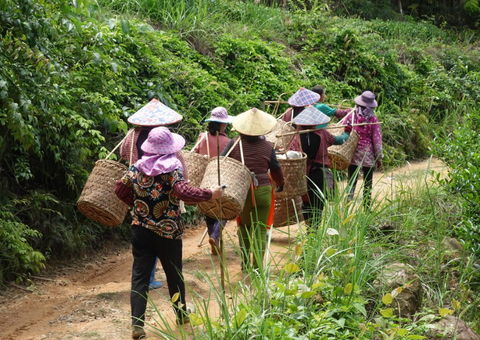
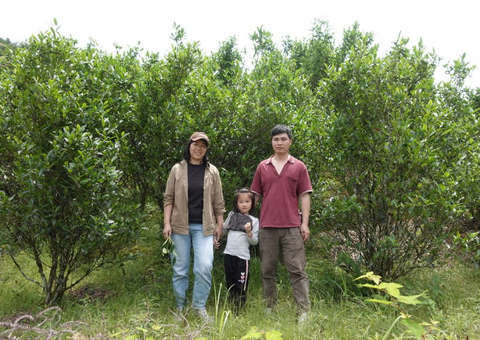
We don't currently have any Wuyi Origin teas in stock but hope to soon.
Follow Cindy here
Hidden Hills Tea Garden, Sri Lanka
Hidden Hills sits in a unique environment that's perfect for natural tea production. It's surrounded by forest, has an abundance of spring water and is near the Seetawaka wet zone botanical gardens. The altitude combined with the local bird life from the botanic gardens means that no chemicals, pesticides or herbicides need to be used on the tea plants. It's all taken care of by nature.

Hidden Hills is run by Chula De Alwis and his business partner Saman Peiris. Chula has spent his entire career in tea - working as a manager of large tea estates and for a tea export company. He always dreamed of owning a tea garden and crafting his own tea - a dream that became a reality a few years ago.
Chula and his team produce tiny batches of hand-plucked, hand-processed teas. Chula closely oversees each batch and is constantly refining their methods.
The team produces black, green and aromatised tea blends. Chula is currently experimenting with crafting a white tea. His green tea has been lab-tested and shown to contain an exceptionally high polyphenol content.
View my current collection of Hidden Hills teas here.
You can follow Chula on Instagram or facebook.
Araksa Tea Garden, Thailand
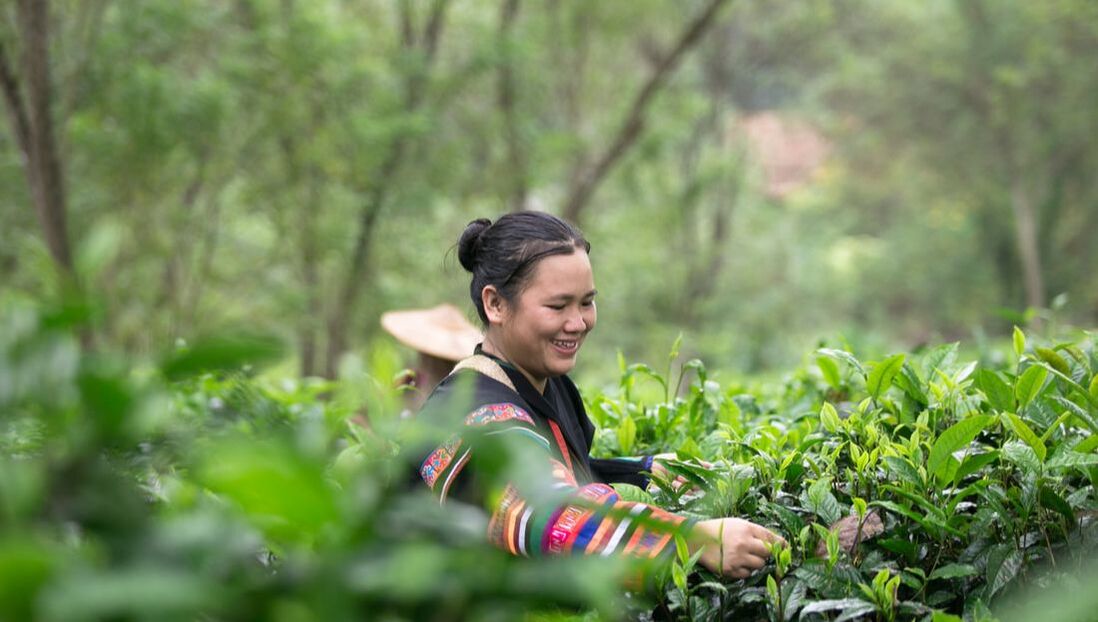
The garden produces high-quality, organic tea and orientates its tea production around high-grade tea manufacture, natural garden management and local employment. It was the first garden in Thailand to be certified both USDA and EU Organic for Farm and Factory.
